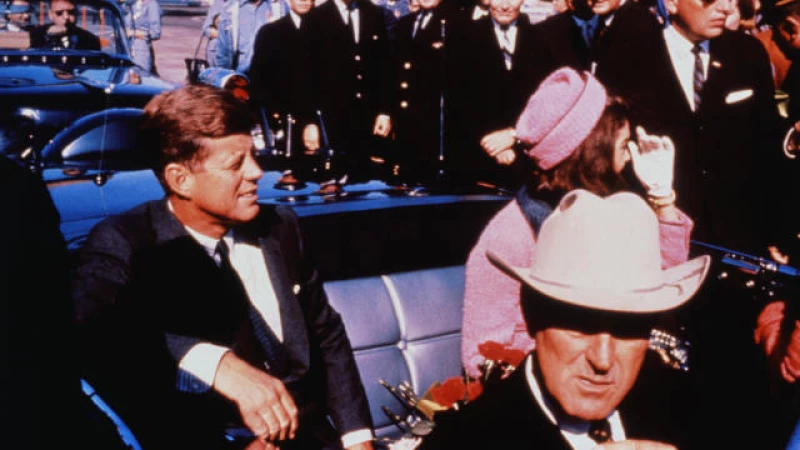Jacquelynn Lueth is executive producer of the new Paramount+ Original documentary, "JFK: What the Doctors Saw," which brings to light stunning revelations from doctors who were in the E.R. on the day of President John F. Kennedy's assassination. Stream it now on Paramount+.
November 22, 1963, is a date defined by I will never forget. Sent home from school alone, frightened and attached to the TV, the day unfolded before me that even by today's standards was too much, too fast and too sad to grasp the entirety of what went down.
My commitment to understanding it moved from passive to active many years later when Dr. Lawrence Klein, one of my personal physicians introduced to me by by mom, told me that on Nov. 22, 1963, he was a third-year medical student at UT Southwestern, doing a rotation at Parkland Memorial Hospital, and was in the emergency room when President John F. Kennedy was brought in. His hope was that his recollection, a shared moment in history, could be recorded as part of his legacy for his grandchildren.
During our conversation, we delved into his responsibilities, such as escorting the president to Trauma Room One, notifying the chief of neurosurgery, and transporting the injured Texas Governor John Connolly on the infamous "magic bullet" gurney. As someone with a background in television, our discussion quickly shifted from a book idea to a documentary, with plans to reach out to the other surviving doctors who were present in the ER that fateful day. At that moment, I had no preconceived notions or theories. Armed with over 50 years of data and testimonies, my research began in the present and gradually moved backwards.
I conducted videotaped interviews with seven of the doctors. We attempted to contact Dr. Malcom Perry, the attending surgeon in charge, and Dr. Kemp Clark, the chief of neurosurgery, but unfortunately, both were unable to participate due to health issues. The interviews were conducted individually, and later, I brought them together as a group. It was the first time they had been reunited since the assassination.
Their memories were vivid and precise, as if the passing decades had vanished. Each of them had a strong reaction when the autopsy photos were displayed on a screen. While they didn't agree on everything, it became evident that the president's appearance at Parkland did not align with the autopsy images taken at Bethesda, even before the official autopsy commenced.
Interviews Shed New Light on JFK Assassination
During my investigation into the JFK assassination, I conducted interviews with various individuals who had valuable insights into the events surrounding that fateful day.
One of the interviews I conducted was with Jim Jenkins, the sole surviving member of the autopsy team. I wanted to compare his observations with those of the doctors at Parkland Hospital. Additionally, I spoke with Robert Tanenbaum, the former deputy chief counsel for the House Select Committee on Assassinations. Tanenbaum provided further clarity on what information was disclosed to the public and what was withheld.
My husband, Bill Garnet, and I have dedicated over 15 years to researching this topic. Our findings have led us to the following conclusions:
- The doctors at Parkland Hospital had extensive experience in treating gunshot wounds and had no ulterior motives. They were solely focused on saving the president's life.
- Several doctors who examined JFK's body believed that the wound in his neck was an entrance wound. Additionally, they observed a large hole in the back of his head.
It became evident that the government took various measures to discredit, intimidate, and threaten the Parkland doctors. Their observations contradicted the Warren Commission's "magic bullet" theory, leading me to believe that there was a deliberate cover-up. The truth was withheld from the public.







